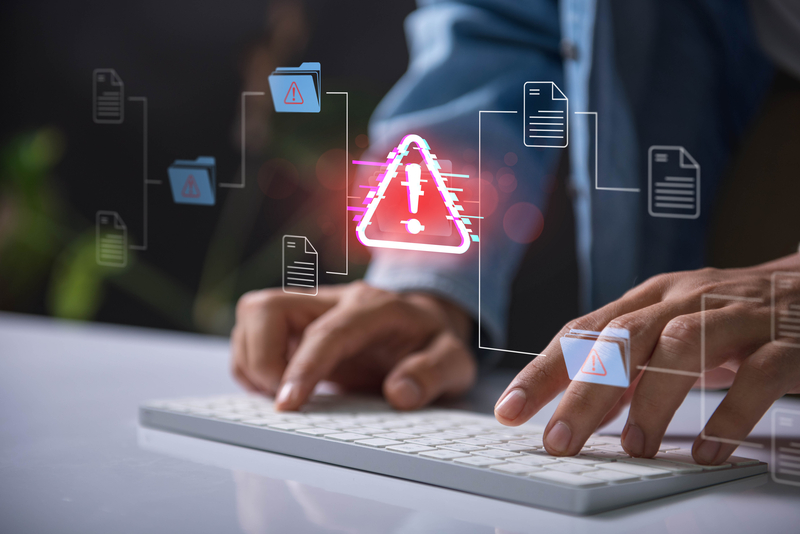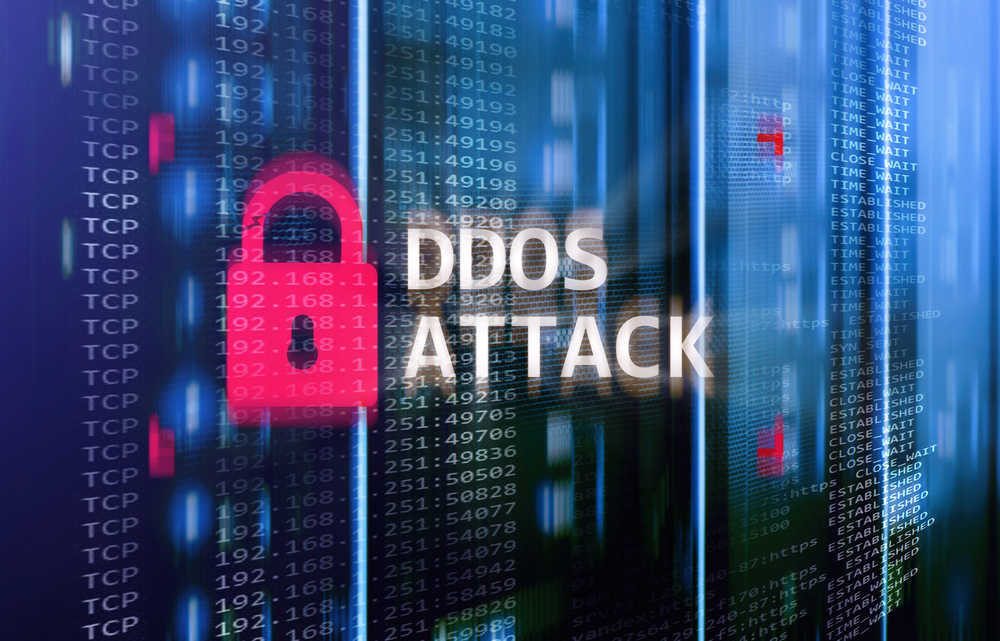
AI makes bots easier to deploy and harder to detect
Automated bot traffic surpassed human-generated traffic for the first time in a decade last year, making up 51 percent of all web traffic. This shift is largely attributed to the rise of AI and Large Language Models (LLMs), which have simplified the creation and scaling of bots for malicious purposes.
The latest Imperva Bad Bot Report from Thales shows cybercriminals are increasingly leveraging these technologies to create and deploy malicious bots which now account for 37 percent of all internet traffic -- a significant increase from 32 percent in 2023.

TP-Link becomes a CVE Numbering Authority to improve cybersecurity
As someone who uses and loves TP-Link products (including its affordable routers and smart home devices) I’m truly elated to see the company taking cybersecurity more seriously. You see, the company has officially joined the CVE Numbering Authorities (CNAs), meaning it can now assign CVE IDs to security flaws found in its own products.
Here’s why it matters, folks: CVEs (Common Vulnerabilities and Exposures) are used to track publicly known cybersecurity issues. By becoming a CNA, TP-Link gains the power to document and disclose vulnerabilities faster and more transparently. That’s a win for both the company and the people who rely on its devices every day (such as yours truly).

Illumio uses security graphs to identify threats
The idea of security graphs was floated last year by Microsoft to make it easier to identify risks across networks.
Today Illumio is one of the first to make commercial use of this idea with the launch of Illumio Insights, the industry's first cloud detection and response (CDR) solution powered entirely by an AI security graph.

Organizations fix under half of exploitable vulnerabilities
The latest State of Pentesting report from Cobalt reveals that organizations are fixing less than half of all exploitable vulnerabilities, with just 21 percent of GenAI app flaws being resolved.
It also highlights a degree of over-confidence with 81 percent of security leaders saying they are 'confident' in their firm's security posture, despite 31 percent of the serious findings discovered having not been resolved.

Quantum solution aims to secure communication using satellites
Today is World Quantum Day -- which probably means that it simultaneously both is and isn't. Seriously though, we're used to hearing dire warnings about how quantum computing threatens encryption and private communication, but of course it can also be part of the solution.
A new alliance between Partisia, a leader in multiparty computation (MPC), Squareroot8, a provider of quantum-safe communication solutions and NuSpace, a company specializing in IoT connectivity services and Satellite-As-A-Service wants to place a Quantum Random Number Generator (QRNG) on a satellite in space.

Initial access brokers target mid-sized businesses for ransomware
Initial access brokers (IABs) are the invisible engine of modern cybercrime. They don't execute ransomware attacks, but they do enable them.
Research from Check Point External Risk Management (formerly Cyberint) shows that IABs are increasingly targeting smaller businesses, with 60.5 percent of listings targeting SMBs (companies with $5M - $50M revenue), representing a new 'sweet spot' for attackers.

Gcore launches DDoS protection for enterprise infrastructure
Organizations are increasingly faced with complex DDoS attacks that disrupt operations, increase latency, and compromise network security.
Security solutions company Gcore is launching 'Super Transit', which is not a big van but a cutting-edge DDoS protection and acceleration feature, designed to safeguard enterprise infrastructure while delivering lightning-fast connectivity.

Network-based malware detections increase 94 percent
A new report from WatchGuard Technologies shows a 94 percent increase in network-based malware detections in the last quarter of 2024.
There’s also been an increase in overall malware detections including a six percent increase in Gateway AntiVirus (GAV) detections and a 74 percent increase in Advanced Persistent Threat (APT) Blocker detections, the most significant rises came from proactive machine learning detection offered by IntelligentAV (IAV) at 315 percent.

Number of ransomware victims increases 102 percent
Ransomware attacks reached a historic high in the first quarter of this year, with 2,063 victims reported, a 102 percent increase compared to the previous year.
The report from GuidePoint Security also records a record high number of active threat groups, with 70 identified in Q1, reflecting a 55.5 percent year-on-year rise.

First quarter of 2025 sees record numbers of ransomware attacks
New findings from threat protection platform BlackFog show the first quarter of 2025 has seen record-breaking numbers of publicly disclosed ransomware attacks, marking a 45 percent increase compared to Q1 of 2024.
Analysis of ransomware activity in the period from January to March saw records set each month. Both January and February set new monthly records for disclosed attacks, with increases from 2024 of 22 percent and 36 percent, respectively while March recorded the largest number of disclosed attacks since BlackFog began tracking in 2020, with 107 attacks -- an 81 percent increase compared with March 2024.

Immutable backup storage is the best defense against ransomware
New research from Object First shows 81 percent of IT professionals say immutable backup storage built on Zero Trust principles is the best defense against ransomware, and 54 percent view target backup appliances as more secure than integrated appliances.
The report, produced with Informa TechTarget's Enterprise Strategy Group, finds two-thirds of organizations have suffered an attack, and 45 percent experienced multiple attacks. Moreover, 49 percent of affected organizations took up to five business days to recover, and most could not recover all of their data.

The devices that are exposing enterprises to risk
The enterprise device landscape is becoming much more complex and more dangerous, with the average device risk per industry increasing by 15 percent year-on-year.
A new report from Forescout highlights that network-connected devices, from traditional IT operating systems to specialized healthcare systems and OT machinery, are exposing organizations to damaging threats such as ransomware attacks and data exfiltration.

Could cyberattacks leave Europe in the dark?
A new report highlights how growing reliance on digital technologies across Europe, combined with geopolitical tensions and sophisticated threat actors, is creating a perfect storm that could put energy stability at risk and lead to the lights going out.
The study from security awareness training platform KnowBe4 shows the average number of cyberattacks against utilities more than doubled between 2020 and 2022. Specifically across Europe, cyber threats to the energy sector have surged, driven by an epidemic of under-reporting and lack of detection, with recent attacks disrupting operations, compromising sensitive data, and highlighting the urgent need for stronger cybersecurity measures.

How AI-enhanced cyberattacks are redefining the modern threat landscape [Q&A]
Despite still being in its infancy, it would be hard to overstate the impact that AI has already had on the cybersecurity landscape.
Not only has AI made it infinitely easier and faster to develop a wide range of traditional attacks -- such as phishing, business email compromise and malware -- it has also opened the door to novel strategies and threats. Worse yet, they allow threat actors to develop significantly more targeted and sophisticated attacks, regardless of their knowledge level or skill.

AI boosts cyberwarfare threat amid geopolitical tensions
According to a new report, 73 percent of IT decision-makers globally are concerned about nation-state actors using AI to develop more sophisticated and targeted cyberattacks.
The study from Armis warns that AI-powered cyberwarfare attacks are now becoming a supercharged cyber weapon and urges organizations to immediately close the divide between current cybersecurity programs and future proactive preparation as threats will increase.
